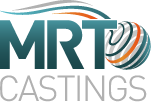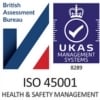In 2011 MRT Castings were approached by one of the world’s leading manufacturers of critical care ventilators during the development of their next generation of units.
Their designers had limited experience with castings, and wanted to reduce their dependence on sheet metal and machined from solid components, this with a view to reduce cost, and open up opportunities for free flowing geometries, and greater vent customisation.
MRT worked together with their global design team to develop component concepts into optimised cast designs. As the client’s confidence in MRT grew, more components were transitioned from other manufacturing processes into diecasting, until we were producing 21 different components for each vent.
MRT’s growth through the early stages of this project was recognised with the Queen’s Award for Enterprise in International Trade 2016.
During the Covid-19 pandemic in 2020, global demand for ventilators rocketed exponentially. MRT mobilised every resource, invested extensively, and scaled up rapidly. Within weeks - and in the most challenging of circumstances - we increased five-fold the production of life-saving ventilators with no compromise in quality or standards.
MRT’s growth was again recognised with a second Queen’s Award for Enterprise in 2022.








